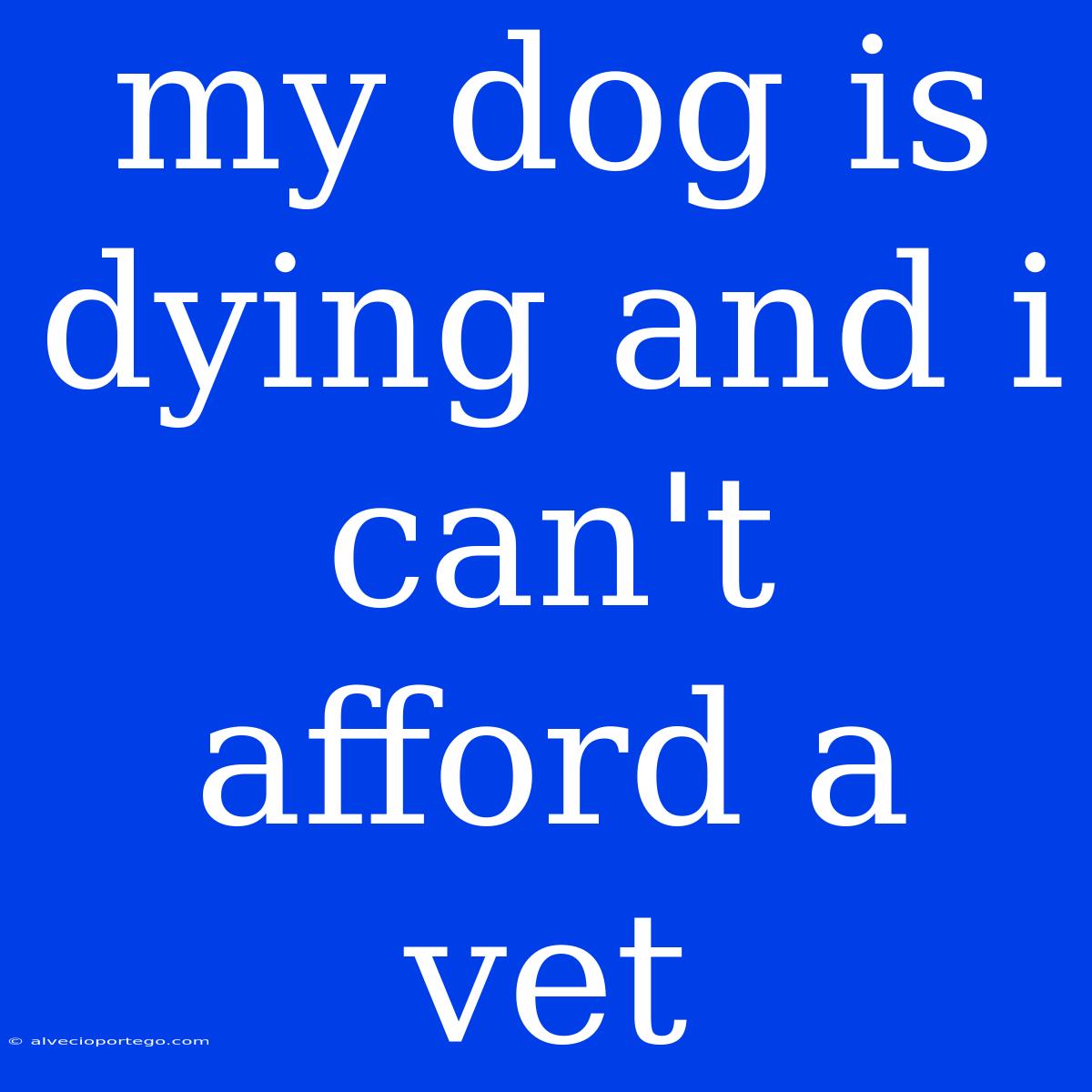Saying Goodbye: Navigating Loss When You Can't Afford a Vet
Facing the potential loss of your beloved dog is heartbreaking, especially when financial constraints make accessing veterinary care difficult. This is a tough situation to be in, and it's important to remember you're not alone.
Here's a guide on how to navigate this incredibly difficult time:
1. Recognizing the Signs:
- Changes in Appetite: A drastic decrease in eating or refusal to eat is a serious concern.
- Lethargy: If your dog is significantly less active and seems tired all the time, it could be a sign of illness.
- Pain: Whimpering, panting, or reluctance to move can indicate pain.
- Breathing Difficulty: Labored breathing, open-mouth breathing, or coughing could be a symptom of a serious condition.
- Vomiting and Diarrhea: Persistent vomiting or diarrhea can lead to dehydration and weakness.
- Changes in Bowel Movements: Straining to defecate, changes in stool consistency, or blood in the stool are serious signs.
- Cognitive Decline: Confusion, disorientation, or loss of housetraining could signal a neurological issue.
2. Seeking Support:
- Talk to a Trusted Friend or Family Member: Sharing your feelings and concerns can provide emotional support.
- Reach Out to Animal Shelters or Rescue Organizations: Many shelters offer low-cost or free basic veterinary care. They may also have resources for end-of-life care.
- Contact Local Animal Welfare Organizations: Organizations like the Humane Society or ASPCA might have programs or resources to assist with veterinary expenses.
- Explore Online Resources: Websites like Petfinder and the ASPCA website often provide information on low-cost veterinary clinics and financial assistance programs.
3. Making Informed Decisions:
- Honest Assessment: Be realistic about your dog's condition and the likelihood of recovery. Discuss with a veterinarian or a trusted animal welfare professional to understand the prognosis.
- End-of-Life Care: If your dog's illness is terminal, it's essential to provide comfort and support during their final days. This could include:
- Pain Management: Even if you cannot afford full veterinary care, consider basic pain relief medications from a shelter or rescue organization.
- Providing a Comfortable Environment: Ensure your dog has a soft, clean bed and access to fresh water.
- Spending Quality Time: Show your dog extra love and affection.
- Considering Euthanasia: This is a difficult decision, but it's important to discuss it with a veterinarian or trusted animal welfare professional. Euthanasia can be a humane way to end your dog's suffering.
4. Coping with Grief:
- Allow Yourself to Grieve: Losing a pet is a profound experience, and it's okay to feel sad, angry, or confused.
- Remember the Good Times: Focus on the positive memories and the joy your dog brought you.
- Talk to Others: Sharing your feelings can help you process the loss.
- Seek Professional Support: If you find yourself struggling, consider talking to a therapist or grief counselor.
Remember, you're not alone. Reach out for support, and make the most of the time you have left with your beloved companion.

